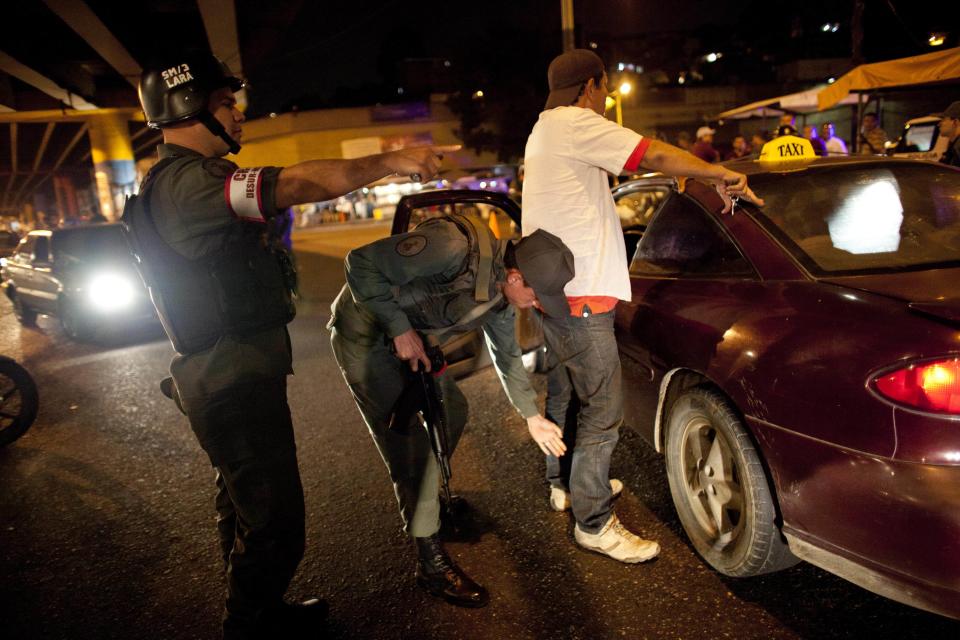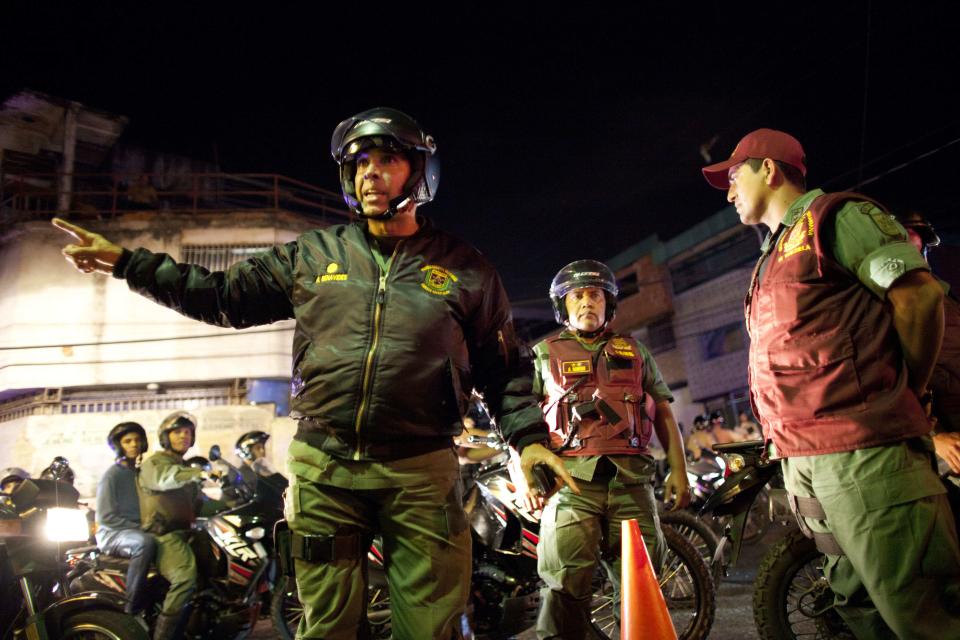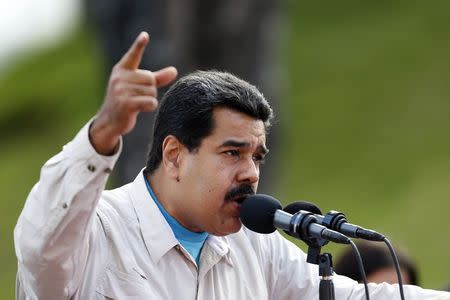Method To The Madness
"It's not the best way to earn a living, but it is the easiest." If the families don't pay up, we eliminate that person."
"It is not if this is right or wrong [killing people for profit]. I don't give a s--t about that. They've seen our faces so we can't afford to let them go."
"We have lots of contact with the police. They tip us off if anything is going wrong. We pay for that and give them a cut to stay quiet."
"I feel nothing in particular for my neighbours, but I respect them because I know that they have hard lives."
"This country is screwed and it's not going to get better."
Jorge Gonzalez (pseudonym) kidnap-gang leader, Caracas, Venezuela
 |
| In this May 14, 2013 photo, a National Guard soldier frisks a man outside his car at a checkpoint that is part of the "Secure Homeland" initiative in Petare, one of the most dangerous neighborhoods of Caracas, This scene is playing out day and night at dozens of military checkpoints set up in the socialist government's latest attempt to control the oil-rich country’s pandemic of violence. (AP Photo/Ariana Cubillos) |
It's tough to earn a living in Venezuela. The country has been so horribly mismanaged that Hugo Chavez with his Bolivarian Revolution, and his celebrated passion for supporting the lives of the underprivileged, and his devil-scenting of American presidents, and his giving poor Americans a break on heating oil, his generosity with Venezuela's oil income to poorer neighbours and to Cuba, left him no time nor inclination to begin to diversify his country's income.
So it remains heavily dependent on selling its vast oil resources. Taking into account corruption and downright clumsy stupidity in failing to invest in the country's infrastructure, let alone refining infrastructure, the country appears to be collapsing under the weight of low oil prices hitting the world market, a la Saudi Arabia. Venezuela finds itself in the same basket as its friends in Iran, as does Russia, with a devalued commodity upon which much depends.
The cost of living is sky-high for Venezuelans, and the unemployment rate has shot into the stratosphere. As has violence, always high but increasingly present. Canadian journalist Matthew Fisher arranged to have a first-person interview with one of Caracas's notorious kidnapping business chiefs. And when he asked of him why he would murder those whom his gang kidnapped if ransoms didn't come through, the response was that they could identify their captors.
Well, in fact, so too could those whose families were able to ransom them successfully for release. The victim's family and friends are given 72 hours to gather the ransom demanded; without that ransom coming through the abductee is simply disposed of. It's the easiest way to rid themselves of a nuisance; what to do with a kidnap victim whose resources are not immediately capable of freeing them? Murder.
In the 20-minute interview in a park sitting on a bench across from the jail where police park their most dangerous prisoners until their trial date comes up, a venue that the kidnapper-in-chief himself selected, the "market" was explained. The middle class was his target, not the rich, because they had the means to pay for private armed guards and armoured vehicles and the clout to get police directly involved. Whereas police would simply yawn when someone of the middle-class goes missing.
 |
| In this May 14, 2013 photo, Gen. Antonio Benavides, left, gives instructions to soldiers during a security operation that is part of the "Secure Homeland" initiative in Petare, one of the most dangerous neighborhoods of Caracas, Venezuela. The murder rate doubled during the 14-year-rule of the late President Hugo Chavez as cheap access to guns and an ineffective justice system fed a culture of violence in slums like Petare, parts of which have become no-go zones for outsiders, including police. (AP Photo/Ariana Cubillos) |
They wouldn't bother with tourists or foreigners since they wouldn't have Venezuelan bank accounts to be drained, only what they might be carrying on them, limited amounts of cash, so why bother? Besides which, to kidnap foreigners is to invite international attention and embarrassment to the government of President Maduro who would then call on the police to clamp down. Better to be avoided.
Gang members carefully plot who their next target will be by following their movements for a month to know where they live, work and how they may entertain themselves. And to determine whether relatives were capable of assembling a ransom of 200,000 to 200,000 bolivars analogous to $300 to $600 on the black market or $16,000 to $32,000 at the official exchange rate.
It's a living, shrugs the kidnap chief, in a country that depends on oil for 95 percent of its foreign exchange, and which has been sent into a tailspin by the catastrophic drop in oil prices. "A high degree of caution due to the significant level of serious crime, such as murder, kidnapping and armed robbery", warns Western foreign affairs departments to would-be travellers.
No fewer than 90 murders were committed int he capital in the first six days of the first month of the year. Exciting vacation getaway, anyone?
 |
| Venezuela's President Nicolas Maduro speaks to supporters during a rally against imperialism in Caracas March 12, 2015. REUTERS/Carlos Garcia Rawlins |
Labels: Crime, Economy, Oil Revenues, Poverty, Venezuela, Violence

<< Home